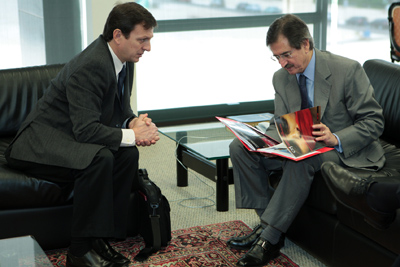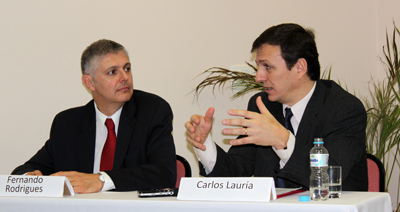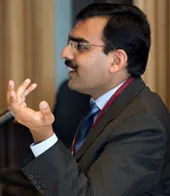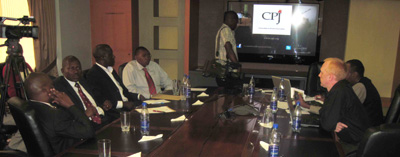
Brazilian officials tell CPJ they see judicial censorship
Government officials in the administration of Brazilian President Dilma Rousseff acknowledged that judicial censorship is inhibiting the work of the local press during meetings with CPJ on Thursday and Friday. At the same time, they said that due to the separation of powers under the Brazilian constitution, there is not much they can do to…

CPJ calls on EU leaders to get their house in order
The European Policy Centre (EPC), Brussels’ leading think tank, hosted CPJ for a policy dialogue marking the launch of our annual survey, Attacks on the Press, on Tuesday. CPJ’s visit to Brussels coincided with a heated debate over Hungary’s new controversial media law, which has eclipsed the country’s first months as EU’s rotating president. The…

Attacks launch: Judicial censorship strikes a chord in Brazil
During the presentation of our annual survey, Attacks on the Press, in Sao Paulo, there was clear concern about the ability of the local media to report on issues of public interest without judicial interference. Journalists for three of the largest national dailies–O Estado de Sao Paulo, Folha de Sao Paulo, and O Globo–together with…

At Attacks launch: What if governments are perpetrators?
When we launched the new edition of Attacks on the Press at the United Nations today, I was hit with questions about Sri Lanka and Pakistan. Both dealt with what amounts to the same problem: What do you do when you’re asking a government to investigate a crime in which it might have been the…

Nairobi Attacks launch probes investigative reporting
At CPJ’s book launch of our annual survey of press freedom conditions across the world, Attacks on the Press, today in Nairobi, we focused on the growing theme of challenges to investigative journalism in Africa, with a particular look at East Africa. The subject certainly resonated with the local and foreign journalists here.